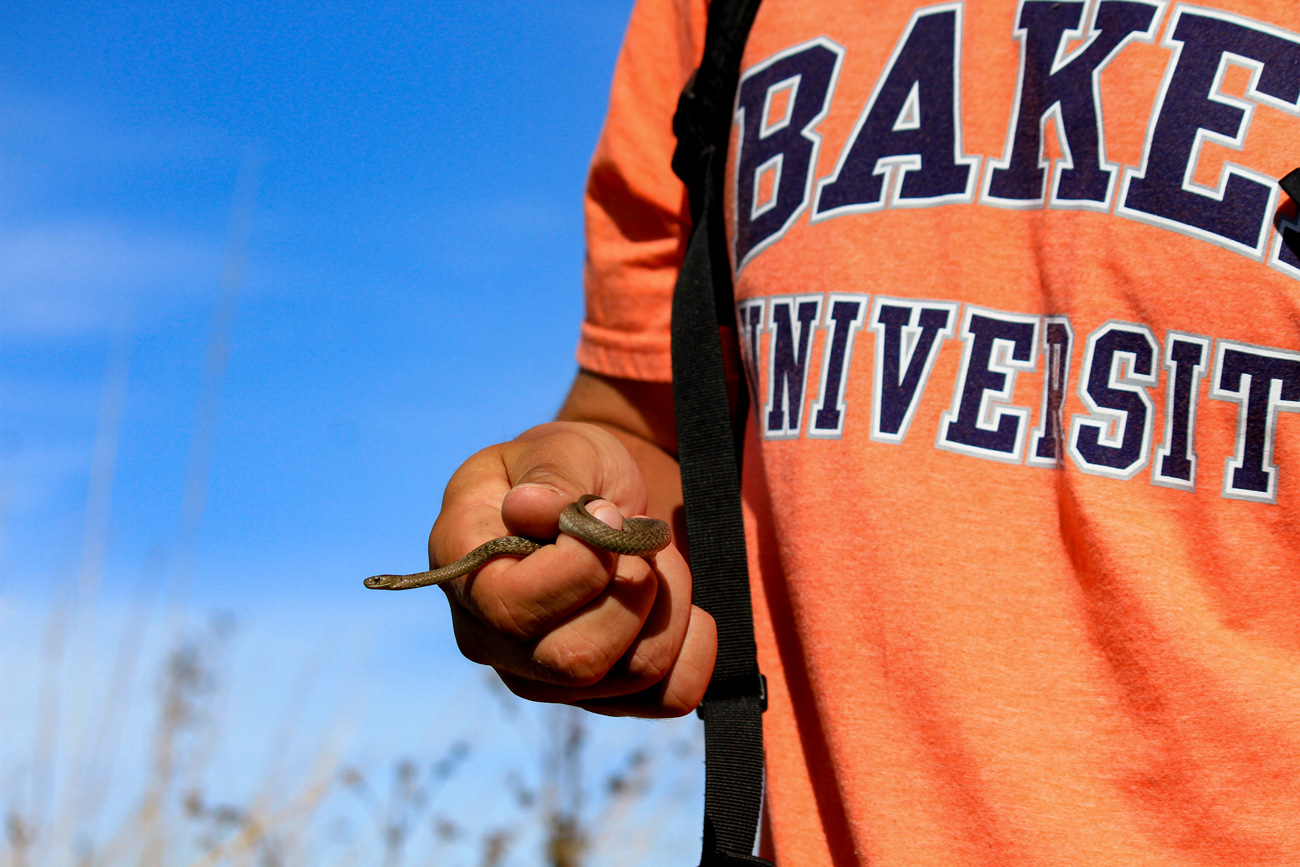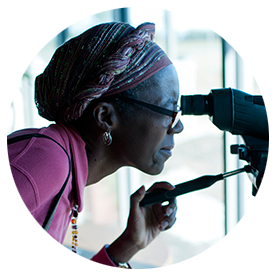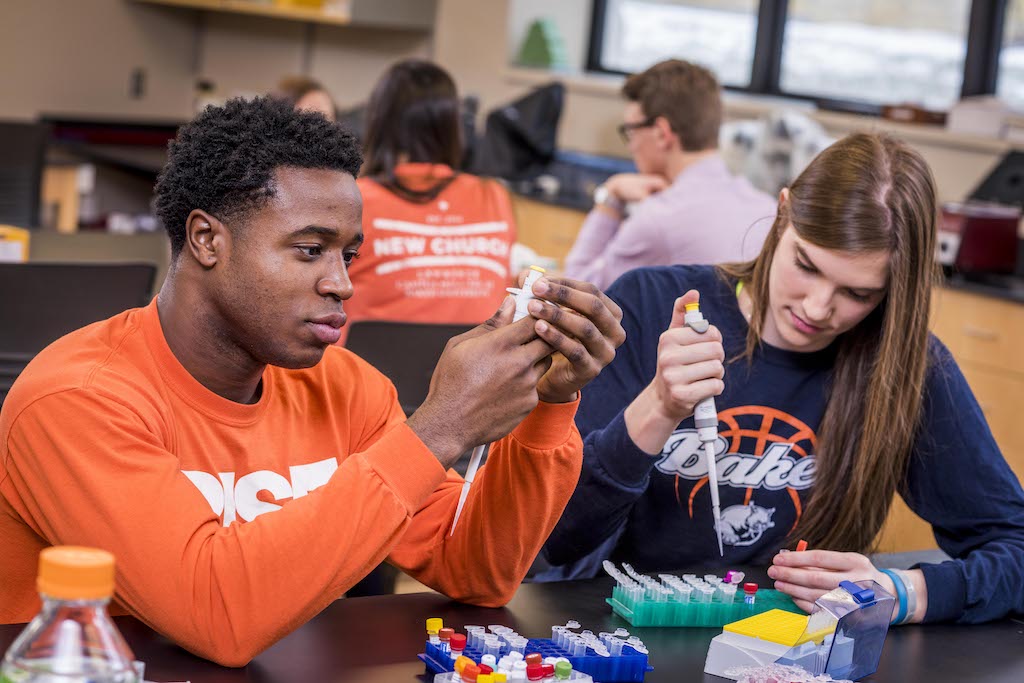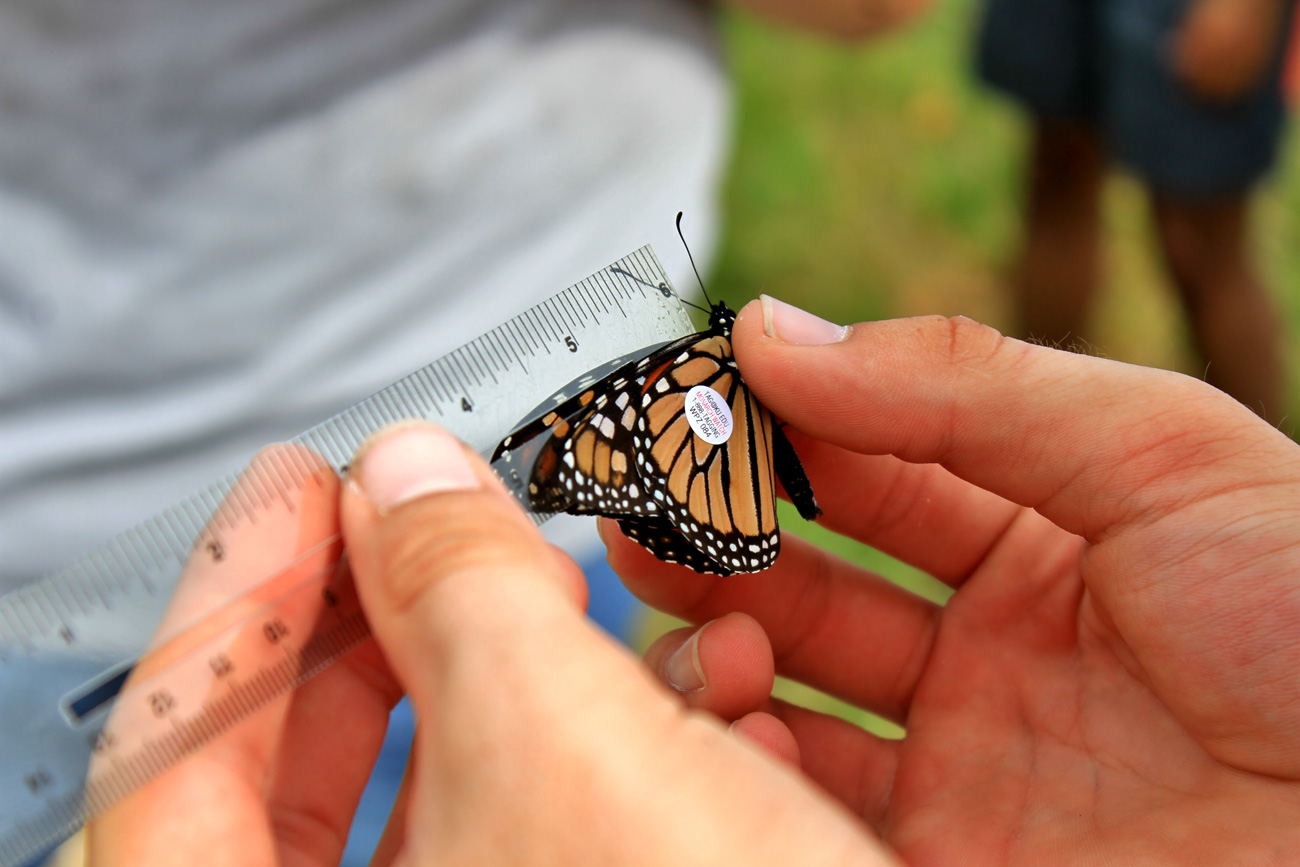BI 120 – Human Ecology 3 hrs.
This course is intended for the non-science major. It presents the terminology, methodology, and worldview of biological science through a consideration of the impact of modern technology on human ecology. (This course may not be counted towards either the major or minor in Biology.)
BI 125 – Human Genetics 3 hrs.
This course is intended for the non-science major. It will focus on the role of genetics in health, medicine, society, ethics, and evolution. Students will discover how biology and genetics affects them directly. (This course may not be counted towards either the major or minor in Biology.)
BI 151 – Molecular and Cellular Biology 3 hrs.
This course is an entry-level course for Biology majors. The course will address the relationship between structure and function of the major biological molecules (proteins, nucleic acids, carbohydrates, and fats) as well as the relationship between structure and function of cells and organelles. The students will also be introduced to the basic principles of molecular genetics and evolution. Co-requisite: BI 151L.
BI 151 L – Molecular and Cellular Biology Laboratory 1 hr.
The laboratory that accompanies BI 151. Prerequisite or co-requisite: BI 151.
BI 152 – Genetics 4 hrs.
This course is an entry-level course for Biology majors. Genetics is the study of heredity at the population, organismal, cellular, and molecular levels. This course will focus on the Mendelian rules of inheritance in individuals and in populations. The molecular mechanisms that control cell division and gene expression will also be discussed. There will be three lecture/discussion periods per week, and one laboratory session per week where students will learn techniques used to study inheritance patterns. Prerequisite: BI 151.
BI 246 – Human Anatomy and Physiology I 3 hrs.
This course is the first of a two-semester sequence in which human anatomy and physiology are studied using a body systems approach, with emphasis on the interrelationships between form and function at the gross and microscopic levels of organization. Human Anatomy and Physiology I is required for students in Exercise Science and Physical Education, and for pre-professional students in Nursing and other allied health sciences. The course covers the basic anatomical and directional terminology; homeostasis; cell biology; histology; skeletal, muscle, nervous, cardiovascular, and respiratory systems; and the digestive system and metabolism. There are three lecture and discussion sessions and one laboratory session each week. This course does not count towards a major or minor in Biology. Prerequisite: Sophomore status or instructor permission.
BI 246L – Human Anatomy and Physiology I Lab 1 hr.
The laboratory that accompanies BI 246. Prerequisite or co-requisite: BI 246.
BI 247 – Human Anatomy and Physiology II 3 hrs.
Human Anatomy and Physiology II is a continuation of Human Anatomy and Physiology I, and is required for preprofessional students in many of the allied health sciences. The course covers the integumentary system; neural integration; general and special senses; the endocrine system; blood; the lymphatic system and immunity; the urinary system; fluid/electrolyte and acid/base balance; and the reproductive system and human genetics. Homeostasis is emphasized as a unifying theme throughout both semesters. There are three lecture and discussion sessions and one laboratory session each week. This course does not count towards a major or minor in Biology. Prerequisite: BI 246 with a grade of C or higher.
BI 247L – Human Anatomy and Physiology II Lab 1 hr.
The laboratory that accompanies BI 247. Prerequisite or co-requisite: BI 247.
BI 251 – Ecology and Evolution 4 hrs.
This course is an entry-level course for Biology majors. The course will work from an evolutionary perspective to address the basic ecological levels of structure and function including populations, communities, and ecosystems. Three lecture/discussion and one laboratory session will occur each week.
BI 254 – Organismal Diversity 4 hrs.
This course is a survey of prokaryotic and eukaryotic organismal diversity. The evolutionary relationships, taxonomy, and characteristics of major organismal groups, especially plants and animals, will be emphasized. There are three lecture/discussion periods and one laboratory session each week. Prerequisite: BI 251.
BI 262 – Microbiology 3 hrs.
This course is an introduction to microbiology. Topics include a survey of microbes including viruses, bacteria, archaea, fungi, protozoa, and algae. In addition to consideration of the taxonomy, genetics, anatomy, and physiology of these organisms, we will also consider how they interact with their environments. For pathogenic organisms, this will entail an introduction to the field of immunology. Co-requisite: BI 262L.
BI 262L – Microbiology Laboratory 1 hr.
The laboratory that accompanies BI 262. Co-requisite: BI 262.
BI 298 – Experimental Design Workshop 2 hrs.
This course is designed to provide a fundamental understanding of experimental design in the biological sciences, with an emphasis on the role of statistical analysis in well-designed experiments. Students will design and develop a proposal for an original research project under the mentorship of the department faculty. Students who have completed BI 151, 152, and 251 with a minimum grade of C and are interested in pursuing a major in Biology will enroll in this course in the spring of their sophomore experience.
BI 340 – Plant Form and Function 3 hrs.
This course covers core concepts of the structural and functional biology of plants. Taxonomy and morphology of seedless and seed plants are compared, and the evolutionary basis for their diversity is explored. Fundamental principles of how plants work in energy transformation, water and nutrient transport, responses to environmental changes, growth, differentiation, reproduction, and dispersal are considered. Use of plants in agriculture, industry, and medicine are also discussed. This course is required for Biology majors within the Ecology and Evolution Track. Course content is presented online via selected readings, videos, interactive modules, and discussions. Prerequisite: BI 254.
BI 340L – Plant Form and Function Lab 1 hr.
This is the laboratory course that accompanies BI 340. Co-requisite: BI 340.
BI 342 – Plant Physiology 4 hrs.
This course covers the biology of plants from an evolutionary perspective at the population, organism, cell, and molecular levels of organization. It also emphasizes how plant biology can be used to better understand aspects of ecology, agriculture, and medicine. There are three lecture and discussion sessions and one laboratory session each week. Prerequisite: BI 251 and BI 251.
BI 344 – Forest Ecology 4 hrs.
This course will provide a basic introduction to the ecology of forests, with special consideration given to the relationships between plants and animals adapted to eastern deciduous forests found in northeastern Kansas. The course will include lab- and field-based exercises as well as assigned readings from texts and primary literature to provide a fundamental understanding of ecological principles and field techniques that are unique to forest ecology. Prerequisite: BI 254.
BI 356 – Ornithology 4 hrs.
This course covers the biology of birds, including their classification, physiology, behavior, ecology, evolution, and speciation. The field identification of local species is emphasized. This course is recommended as an elective for Biology majors, teachers, and anyone seriously interested in birds. There are three lecture sessions and one laboratory field session each week. Prerequisite: BI 251.
BI 360 – Comparative Vertebrate Anatomy 4 hrs.
This course is a thorough exploration of anatomical similarities and differences among the vertebrate classes and an analysis of the anatomical evidence for evolutionary relationships. In the laboratory, students will gain experience dissecting a series of representative vertebrates to study anatomical diversity. This course is fundamental for Biology majors who plan careers in vertebrate biology and for pre-medical and pre-dental students. There are three lecture and discussion periods and one laboratory dissection period each week. Prerequisite: BI 246 or BI 254.
BI 361 – Developmental Biology 4 hrs.
In this course, students will address the fundamental questions: how does the fertilized egg give rise to the adult body, and how does the adult body produce gametes that can result in the fertilized egg? There are three lecture/discussion sessions and one laboratory session each week in which the students will learn how scientists are using information gleaned from cell/molecular biology, physiology, anatomy, cancer research, neurobiology, immunology, evolutionary biology, and ecology to answer these questions. The scope of this course makes it advisable to have a solid background in biology prior to attempting this study. Prerequisite: BI 152.
BI 363 – Virology 3 hrs.
The world between the living (cellular organisms) and the non-living is occupied by a variety of microbes, including viruses, viroids, virusoids, and prions. Though minute, these particles have a huge impact on human society. In proof, consider the fact that more humans died between the years 1917 and 1920 from the flu than in the battles of World War I. This course is designed to allow students who have completed the introductory microbiology course an opportunity to expand their knowledge concerning these subcellular microbes. Prerequisite: BI 152 or BI 262.
BI 375 – Evolution 3 hrs.
This course is an examination of the theory of evolution, including its historical and social implications. It emphasizes the intellectual skills associated with the testing of evolutionary hypotheses. There are three lecture and discussion sessions each week. Prerequisite: BI 254. BI
377 – Population and Community Ecology 4 hrs.
This course covers the dynamics of the growth of populations and interspecific interactions among communities of organisms. The role of the environment’s relationship to changes in the growth and distribution of populations and the structure of communities will be emphasized. Field and laboratory techniques are covered in the laboratory sessions. This course is recommended for all Biology majors and other serious students of ecology. There are three lecture and discussion periods and one field or laboratory session each week. Prerequisite: BI 251 and 254 or permission of the instructor.
BI 380 – Behavioral Ecology 4 hrs.
This course explores the proximate and ultimate evolutionary explanations for the behavior of animals, with an emphasis on the effect of the environment in selecting adaptive behaviors. The role of scientific process in producing research discoveries is emphasized. There are three lecture and discussion periods and one laboratory session each week. Prerequisite: BI 251 and 254 or permission of the instructor.
BI 382 – Animal Physiology 4 hrs.
This course covers the comparative function of animal organisms from the molecular to the organismal level. The physical and chemical basis for the similarities and differences in function are analyzed. Mechanisms for meeting common problems, such as water and ion balance, feeding and digestion, gas exchange, internal transport, and nerve and muscle functions are studied. The theme of physiological adaptations to the environment will be emphasized. This course is recommended for junior and senior Biology majors and for pre-medical and pre-dental students. There are three lecture and discussion periods and one laboratory session each week. Prerequisite: BI 246 or BI 254.
BI 383 – Advanced Cell Biology 3 hrs.
This course is designed to provide students who will become career scientists or health professionals a solid and deep understanding of the biology of the cell. We will introduce the students to important factual information, terminology, and methodology concerning modern cellular biology via reading assignments in the text and in the primary literature, lectures, and discussions. A secondary goal is to help students develop a clearer understanding of the ethical challenges involved in science. Prerequisite: Junior status and BI 152. Prerequisite or co-requisite: CH 251.
BI 385 – Advanced Molecular Biology 3 hrs.
This course will allow students to expand on their previously acquired knowledge of genetics. Students will study classical and current experiments in molecular biology that are used to determine how the molecules involved in DNA replication, RNA transcription, and protein translation interact and function at the molecular level. Prerequisites: Junior status, BI 152, and CH 251.
BI 386 – Methods in Biochemistry and Molecular Biology 3 hrs.
This intensive laboratory course will give students the opportunity to carry out modern molecular experimental techniques such as recombinant DNA, electrophoresis, protein purification, blotting, and DNA sequencing. Today these techniques are utilized to answer questions in cell biology, molecular biology, and biochemistry. Students should have completed most other biology and chemistry requirements prior to taking this course so that they are prepared to both understand and design molecular experiments. Prerequisites: Senior status and BI 383 or 385 or CH 370.
BI 388 – Immunology 3 hrs.
This course focuses on the cellular and molecular structure and function of the human immune system. It will provide a conceptual background for understanding the development and function of the cells and mechanisms that produce innate and adaptive immunity. The role of pathogens in the immune response, abnormal immune responses, and experimental manipulation of the immune system will also be discussed. Prerequisite: BI 152.
BI 392 – Wetland and Prairie Ecology 4 hrs.
This course examines the plants and animals of a variety of habitats classified within the context of wetlands and prairie. Both of these areas have been greatly reduced in size within the North American continent through agriculture and development. Several areas near Baldwin City provide rare opportunities for study of these areas. The upland community at the Ivan Boyd Prairie Preserve, prairie savannahs at the Ivan Boyd Woodlands, and a variety of wetland types at the 573-acre Baker University Wetlands Research and Natural Area will be the focal points of field study. This course is designed for upper-college Biology majors with an interest in field research. There are three lecture and discussion periods and one laboratory session each week. Prerequisite: BI 377.
BI 410 – Senior Seminar in Biology 2 hrs.
This is the senior capstone course for all seniors graduating with a degree in Biology. The students will consult with the course instructor and project mentor in order to choose a topic that is relevant to their career interests and goals. Through research of the literature, each student will develop a significant paper that will demonstrate their ability to research, interpret, and write in their chosen field. Prerequisite: Senior status, Biology major. It is strongly suggested that students have completed at least two biology courses at the 300 level prior to taking this seminar.
BI 498 – Research in Biology 1-3 hrs.
Students who have completed BI 298 with a minimum grade of C will enroll in two credit hours of BI 498 at some point during their junior experience in order to carry out the research project planned. Students may repeat this course in subsequent semesters to further their research; however, only the original term will count toward the major in Biology. Prerequisite: BI 298 with a C or higher. R


